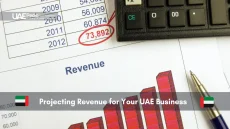Did you know the Emirates’ compensation landscape operates without a government-mandated floor? While many countries enforce national pay standards, this dynamic hub thrives on industry-specific benchmarks—a system blending flexibility with cultural nuance.
Here’s the twist: organizations like the Ministry of Human Resources and Emiratisation suggest guidelines instead. Fresh graduates, for instance, often see entry-level offers around AED 12,000 monthly—a figure shaping expectations in sectors from tech to tourism.
We’ll unpack how salaries shift across fields, why expatriate packages differ from local hires, and where market trends point next. Whether you’re negotiating a contract or planning a career pivot, understanding these unwritten rules matters.
What you’ll discover:
- How industry norms replace formal minimum wage policies
- Key differences between Emirati and expat compensation structures
- Current average salary ranges across major sectors
- Practical tips for navigating pay discussions confidently
UAE Salary Trends 2025 Overview
Imagine earning 25% more just by crossing a city border—welcome to the Emirates’ salary chessboard. As of 2024, the average annual salary in the UAE is approximately AED 189,000 (AED 15,700 per month), reflecting a 4.5% increase from the previous year, but dig deeper: oil-rich Abu Dhabi leads with tech and finance roles often outpacing Dubai’s hospitality-focused packages. Geographic quirks matter as much as job titles here.
Expatriates frequently land higher base salaries than Emirati peers in sectors like construction and IT—think AED 35,000 monthly for senior engineers. But locals often receive housing allowances and family benefits that reshape the total compensation picture. One expat project manager we spoke to joked, “My contract looks generous until I price a villa near the Louvre Abu Dhabi.”
Company size plays referee in this earning game. Multinationals in Abu Dhabi’s free zones typically offer 15-20% above local firms, while startups trade cash for equity or remote work flexibility. Healthcare roles have seen a 6.8% salary increase since 2023, while retail wages have remained largely unchanged, contrasted with flat retail wages.
Market forces are redrawing the rules. With remote work trends, even traditional industries now negotiate hybrid arrangements. As one HR director put it: “Candidates want dirhams and daylight savings—the balance shifted.”
MoHRE Pay Guidelines and Sector Benchmarks
Picture this: fresh graduates in Dubai’s tech hubs pocketing AED 12,000 monthly without a national pay law—how does that work? The Ministry of Human Resources and Emiratisation offers guidance rather than mandates, creating a unique dance between suggestion and reality.
Their benchmarks act like invisible guardrails. Skilled laborers may start at AED 5,000, while technicians can expect around AED 7,000, based on MoHRE’s labor category classifications, while technicians hover near AED 7,000. But here’s the catch: these numbers aren’t etched in stone. A restaurant manager in JLT once told us, “We follow the spirit, not the letter—AED 11k feels fair for entry-level marketers here.”
Employers consider housing costs, family needs, and other factors when structuring compensation packages, often including allowances and benefits when structuring packages. That AED 12k graduate salary? It often expands with transport allowances or health insurance. Yet gaps persist—some firms treat guidelines as ceilings, not floors.
Three things to remember:
- Benchmarks reflect basic living costs, not career potential
- Total compensation often includes hidden perks
- Your negotiation power grows with sector demand
Next time you review an offer, ask: “Does this cover my Dubai grocery run and future goals?” The answer might surprise you.
While the Ministry of Human Resources and Emiratisation provides salary guidelines—such as AED 12,000 for university graduates—these are not legally binding, leading to variability in employer adherence across sectors. Ref.: “Minimum Wage in Dubai: What You Need to Know in 2024 – Emiratization NAFIS.” [!]
Sector Salary Gaps and 2025 Pay Variations
Ever wondered why a tech whiz’s paycheck dwarfs a construction worker’s in the Emirates? The answer lies in sector dynamics—where innovation meets demand. Let’s explore this economic mosaic.
In 2024, engineers in the UAE earned an average monthly salary of AED 50,000, while teachers earned around AED 20,000, highlighting significant disparities based on profession and sector demand. Ref.: “Minimum Wage in UAE? What you need to know in 2024 – Bayzat.” [!]
Top-Paying Sectors and Roles
Tech and finance lead the charge. Senior AI developers pull in AED 45,000 monthly, while investment bankers often clear AED 60,000. Why? Global competition for specialized skills. A Dubai-based cloud architect shared: “My offer included stock options—rare outside tech hubs.”
Management roles shine too. Construction project directors average AED 35,000/month, blending technical expertise with regulatory know-how. These packages often include schooling allowances or annual flights home.
Low-Income Job Categories
Contrast this with general labor roles. Warehouse staff earn AED 2,500 monthly, while domestic workers hover near AED 1,800. Market regulations allow flexibility, but high living costs strain budgets. One Abu Dhabi cleaner noted, “We share apartments to afford groceries.”
Administrative roles face similar challenges. Receptionists earn an average of AED 4,200 per month, which may cover basic expenses but leaves limited room for savings.—enough for basics, but little else. Yet some firms boost retention with transport cards or overtime bonuses.
Three key differences emerge:
- Skill scarcity drives tech premiums
- Labor supply impacts service-sector pay
- Regulations shape benefit structures
What Determines Salaries in the UAE
What if your coffee order revealed salary secrets? In Dubai’s bustling cafes, you’ll overhear professionals negotiating packages where expertise trumps tenure. The Emirates’ pay structures hinge on three pillars: what you know, how you apply it, and who needs those skills.
Experience and Skill Level
Seasoned engineers here often earn 40% more than newcomers—not just for years logged, but for niche certifications. Take cloud security specialists: those with AWS certifications command AED 28,000 monthly versus AED 18,000 for general IT roles. A Sharjah-based recruiter shared: “We once doubled an offer for a bilingual project manager—Arabic fluency closed a critical client gap.”
Impact of Educational Qualifications
Specialized degrees act as salary multipliers. MBA holders average 22% higher starting pay than bachelor’s graduates in finance roles. Government data shows petroleum engineers with master’s degrees outearn peers by AED 9,000/month. But it’s not just about diplomas—microcredentials matter too. One digital marketer boosted her income 30% after completing Google Analytics courses.
| Education Level | Years of Experience | Average Monthly Salary (AED) |
|---|---|---|
| Bachelor’s Degree | 0-3 | 12,000 |
| Master’s Degree | 3-5 | 25,000 |
| PhD/Professional Certifications | 5+ | 38,000+ |
Business needs steer this ship. When Abu Dhabi’s healthcare sector expanded, nurses with ICU experience saw 15% pay jumps. Meanwhile, government initiatives like Emiratisation programs reshape priorities—local hires in banking now receive tailored training bonuses.
Your bargaining power? It’s shaped by these invisible forces. Next salary talk, remember: your unique mix of education, skills, and sector demand forms your dirham DNA.
Salary Differences Across UAE Cities
What’s the price tag on sunshine? In the Emirates’ urban hubs, geography shapes paychecks as much as job titles. Let’s map how dirhams stretch differently across city lines.
To maintain the same standard of living, one would need approximately AED 23,965 in Dubai compared to AED 15,000 in Sharjah, indicating a 60% higher cost of living in Dubai. Ref.: “Cost of Living Comparison Between Sharjah and Dubai – Numbeo.” [!]
City Comparisons and Cost of Living
In 2024, Dubai’s tech specialists earn an average of AED 28,000 monthly, while Abu Dhabi counterparts average AED 25,500., while Abu Dhabi counterparts earn AED 25,500. But flip the script: a 1-bedroom apartment costs 18% less in the capital. One Dubai marketing manager quipped: “My salary buys views of Burj Khalifa—and instant noodles for dinner.”
| City | Average Salary (AED) | 1-Bed Rent (AED) | Monthly Transport (AED) |
|---|---|---|---|
| Dubai | 22,500 | 7,200 | 600 |
| Abu Dhabi | 24,000 | 6,500 | 550 |
| Sharjah | 18,000 | 4,800 | 450 |
Emerging cities like Sharjah attract companies with lower operational costs—salaries dip 20%, but living expenses plummet 35%. Multinationals often base regional HQs in high-cost zones, while startups flock to affordable areas. “We Our company relocated to Sharjah’s art district, reducing operational costs and enabling the hiring of additional developers,” shared a fintech founder. “Savings let us hire two extra developers.”
Three negotiation tips for job seekers:
- Evaluate net income after accounting for rent, utilities, and other living expenses to assess the true value of a salary offer.
- Ask about location-specific allowances
- Research sector demand in each city
Market dynamics shift fast. Dubai’s hospitality sector increasingly offers shared housing to offset rising living costs, which have surged due to increased demand from expatriates. to offset living costs. Meanwhile, Abu Dhabi’s energy sector sweetens deals with education grants. Your dream job’s location? It’s not just a pin on a map—it’s a calculator equation.
“read more: UAE Talent Management Strategies for Retention“
How UAE Employers Set Competitive Salaries
What if salary talks resembled a spice market—vibrant exchanges where data meets diplomacy? Employers across the Emirates blend market insights with cultural awareness to craft competitive packages. Take Dubai’s tech startups: many use real-time salary trackers to match global rates while staying compliant with local guidelines.
Forward-thinking companies lean on the Ministry of Human Resources and Emiratisation’s benchmarks as conversation starters. A Sharjah-based HR director shared: “We show candidates how their offer aligns with industry standards—transparency builds trust.” In Abu Dhabi, firms often pair base salaries with education grants or flexible hours to attract top talent without breaching budget limits.
Three proven tactics from leading cities:
- Using comprehensive salary negotiation guides to balance expectations
- Referencing MOHRE’s sector-specific reports during reviews
- Offering non-cash perks like remote work days or skill-building stipends
Dubai’s hospitality giants set a strong example. One hotel chain revised entry-level packages after analyzing rental costs—boosting housing allowances by 18% while keeping base pay competitive. “It’s not just about numbers,” their HR head noted. “We explain how each benefit addresses living expenses in specific neighborhoods.”
Smart employers treat negotiations as partnership talks. By combining Ministry of Human Resources and Emiratisation frameworks with localized cost data, they create win-win deals. After all, fair compensation isn’t a fixed number—it’s a dynamic balance between market reality and human potential.
Employers in the UAE increasingly use real-time salary trackers and global benchmarking tools to align compensation packages with industry standards, enhancing transparency and competitiveness. Ref.: “UAE Salary Guide 2025: Benchmarking Pay Across Industries – Max HR.” [!]
UAE Wage Compliance and 2025 Pay Standards
How do you keep 200 nationalities paid fairly without a one-size-fits-all rulebook? The answer lies in smart frameworks—where flexibility meets accountability. Let’s decode the systems keeping compensation fair across skyscrapers and startups.
The Ministry of Human Resources and Emiratisation sets the tempo. Their Wage Protection System (WPS) acts like a digital watchdog—ensuring timely salary transfers through approved banks. One Dubai logistics manager told us: “The Wage Protection System (WPS) ensures timely salary transfers, with notifications often arriving promptly, enhancing trust in payroll processes—no more guessing paydays.”
| Industry | Base Salary Range (AED) | WPS Adoption Rate |
|---|---|---|
| Construction | 5,000 – 18,000 | 98% |
| Hospitality | 4,200 – 25,000 | 94% |
| Tech | 12,000 – 60,000 | 89% |
| Healthcare | 8,000 – 35,000 | 97% |
| Retail | 2,500 – 15,000 | 91% |
Cities like Dubai and Abu Dhabi lead with transparency. Luxury hotels here often publish salary bands during hiring—a practice rare elsewhere. “We list ranges upfront,” shared a recruiter at a Palm Jumeirah resort. “Candidates appreciate knowing where they stand before interviews.”
Three compliance must-knows:
- Biometric attendance systems now link to payroll in 73% of large firms
- Quarterly audits check for benefit disparities between roles
- Non-compliant companies face public blacklisting
Forward-thinking firms go beyond basics. A Dubai abu Dhabi tech startup recently introduced real-time salary tracking apps for employees. “Staff can monitor bonuses and deductions daily,” their CFO explained. “Trust skyrocketed—and so did retention.”
The Ministry of Human Resources and Emiratisation keeps refining the playbook. Last year’s update required overtime calculations in employment apps. As one worker put it: “Finally, my extra hours translate to dirhams, not just tired eyes.”
Non-compliance with the Wage Protection System (WPS) can lead to severe penalties, including fines up to AED 1 million and suspension of business operations, emphasizing the importance of adherence. Ref.: “WPS Compliance in the UAE: A Complete Guide – Arnifi.” [!]
UAE Payroll Laws and Worker Protection Systems
What if your paycheck arrived as reliably as desert sunrise? The Emirates’ payment framework ensures just that through smart systems balancing worker rights with business flexibility. Let’s decode the essentials every professional should know.
Wage Protection System (WPS) Essentials
Think of WPS as your salary’s bodyguard—this electronic system mandates employers to deposit funds through approved banks. Registration with MoHRE kicks off the process:
- Companies submit employee contracts and bank details
- Salaries transfer monthly/bimonthly in local currency
- Late payments trigger automatic alerts to authorities
A Dubai HR manager shared: “Our payroll team treats WPS deadlines like flight departures—miss one, and consequences follow.”
“read more: UAE Work Technology Governance Framework and Compliance“
Compliance and Employer Best Practices
Staying compliant isn’t rocket science. First, meet the AED 5,000 guideline for skilled roles—it’s not law, but ignoring it risks audits. Health insurance remains mandatory in cities like Dubai, often covering dependents too.
Three steps for smooth operations:
- Align pay cycles with MoHRE’s calendar
- Document overtime calculations clearly
- Use government-approved dispute resolution channels
Non-compliant firms face fines up to AED 1 million. But smart employers go further. One Abu Dhabi tech firm added salary advance options—cutting payment queries by 73%.
Remember: Labor laws here favor proactive solutions. As one legal advisor put it, “Treat regulations as guardrails, not obstacles—they’re here to keep everyone moving forward.”
“Read also: UAE Workplace Technology Trends Reshaping Offices“
Using Global Salary Data in UAE Job Offers
Ever tried haggling in a souk with a currency converter in hand? Modern salary talks demand similar global savvy. Platforms like PayScale and Glassdoor reveal striking patterns—tech roles here often match Singaporean pay scales, while hospitality packages trail London benchmarks by 18%.
Analyzing Market Trends and Statistics
Take AED 7,000 technician roles. Local guidelines suggest this as fair, but global data shows German counterparts earn 23% more. Smart negotiators bridge gaps using hybrid solutions—like Dubai’s tech firms offering stock options to mirror Silicon Valley trends.
Three ways data transforms talks:
- Paylab’s regional reports expose sector-specific gaps
- Employers benchmark against G20 nations to attract talent
- Employees use cost-of-living calculators to justify requests
A recruiter shared: “We adjusted offers after seeing Riyadh’s cloud engineer rates—retained three top candidates.” Guidelines evolve too. Last year’s MOHRE updates incorporated OECD working hour standards, reshaping overtime policies.
Key move? Treat salary checkers as compasses, not maps. As one Sharjah HR head advised: “Blend local guidance with global context—that’s where fair deals bloom.”
Read More:
UAE Compensation Outlook and Takeaways
Navigating compensation in the Emirates is like charting a course through shifting sands—dynamic and full of hidden contours. Our journey through industry benchmarks reveals a landscape where tech roles sparkle like desert stars, while service positions anchor to practical realities. What connects them? A delicate balance between cultural norms and global market forces.
Three compass points guide success here. First, statutory laws set the guardrails, but payment practices often dance to sector-specific rhythms. Second, savvy professionals treat allowances as puzzle pieces—housing perks and education grants can transform a basic salary into a complete picture. Third, compliance isn’t just red tape; it’s your career’s safety net in this fast-moving economy.
PROVEN OPTIMIZATION TECHNIQUE:
Employers in the UAE are adopting flexible compensation strategies, including remote work options and skill-building stipends, to attract and retain top talent in a competitive market. Ref.: “Salaries Guide in Dubai/UAE for 2024 – JobXDubai.” [!]
For those plotting their next move: bookmark the Ministry of Human Resources and Emiratisation’s updates. Track how rising demand in renewable energy and AI reshapes industries. And remember—your total compensation reflects both your skills and your negotiation roadmap.
Ready to dive deeper? Explore uaepedia.net for real-time salary tools and cultural insights that turn complex regulations into clear stepping stones. After all, in this land of ambition, knowledge isn’t just power—it’s currency.
While there’s no federal minimum wage, the Ministry of Human Resources & Emiratisation sets unofficial guidelines. For example, university graduates start around AED 12,000/month, while skilled laborers average AED 5,000-7,000. Employers must cover housing, transportation, and health insurance as part of compensation packages.
Abu Dhabi often leads in sectors like government roles and energy, offering 10-15% higher base pay than Dubai. However, Dubai’s private sector roles in tech and finance frequently include performance bonuses. Both cities require employers to align pay with living costs – a meal in Dubai Marina costs 22% more than in Khalifa City, Abu Dhabi!
The Wage Protection System (WPS) mandates on-time payments via approved channels. Delays beyond 15 days trigger Ministry fines up to AED 5,000 per employee. Repeat offenders face operational bans. During Ramadan 2023, over 200 companies were penalized – proof the system works.
AI specialists in Abu Dhabi’s G42 earn AED 35,000-60,000 monthly, while Dubai’s crypto regulators at VARA command AED 45,000+. Renewable energy engineers in Masdar City and metaverse developers also rank high. Surprisingly, senior yoga instructors at luxury resorts now average AED 18,000 – wellness is big business!
A master’s degree adds 17-23% to salaries in fields like engineering, per 2023 GulfTalent data. But in Dubai’s startup scene, 34% of tech founders without degrees outearn corporate peers through equity deals. Certifications matter too – a PMP certification boosts project manager pay by AED 4,200/month on average.
Yes, but only with written employee consent per Article 47 of Labor Law. During COVID-19, 61% of companies negotiated temporary reductions instead of layoffs. Smart employers paired this with extended visas and future bonus guarantees to maintain trust.
A> Beyond base pay, companies must factor in housing allowances (AED 2,500-15,000), annual flights (AED 3,000-8,000), school fees (up to AED 90,000/year), and health insurance. A Dubai teacher earning AED 15,000 monthly might actually cost the school AED 28,000+ when benefits are included.


















